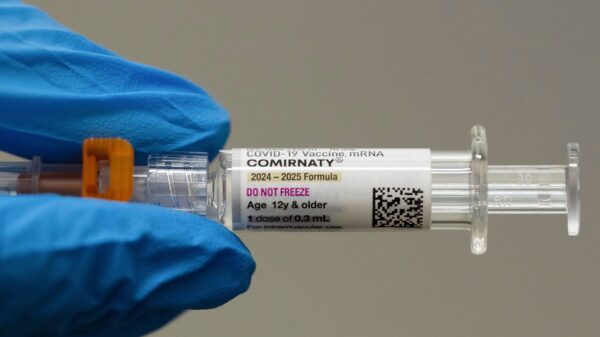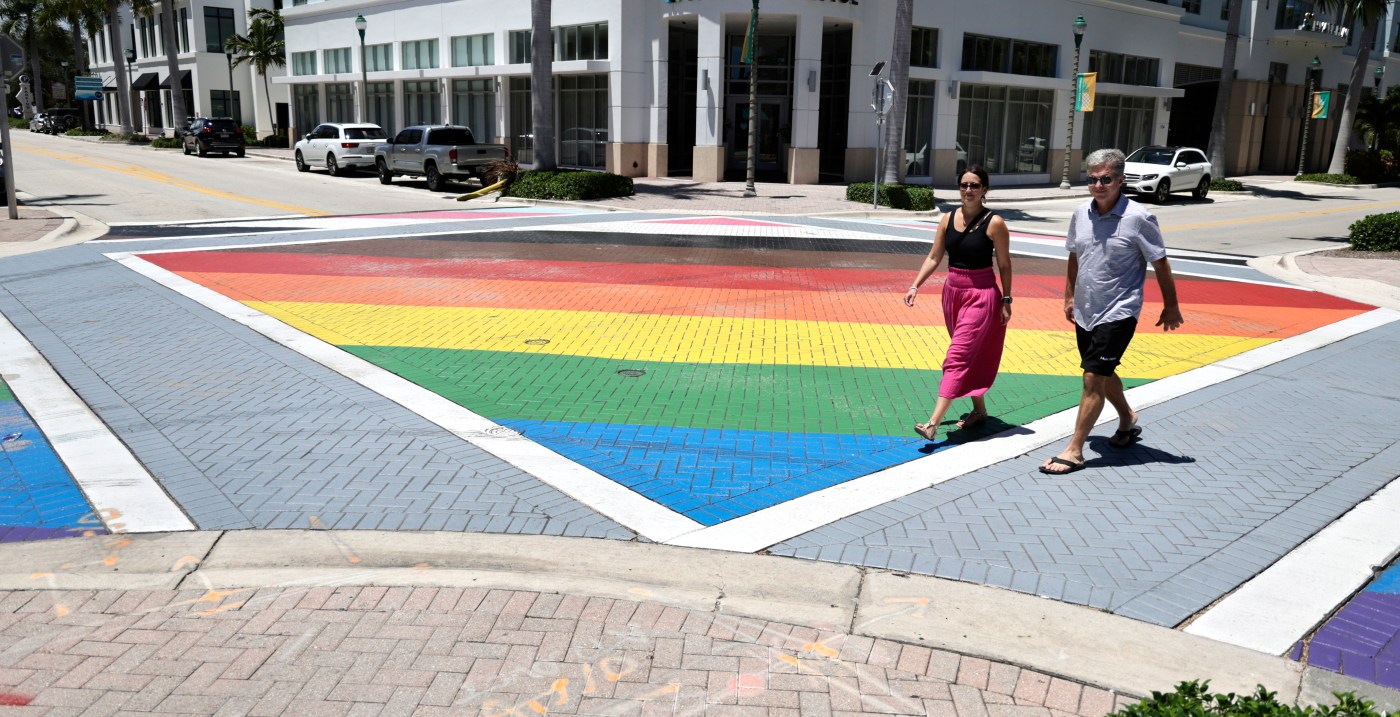Residents of Delray Beach, Florida, are standing firm against an order from the state government to remove a rainbow crosswalk symbolizing LGBTQ inclusion. This decision comes after Governor Ron DeSantis threatened to withhold state funding unless the city complies. At a recent city meeting, Marcie Hall, a 67-year-old veteran, expressed her anguish over the potential loss of the crosswalk, stating, “Marginalized people sometimes need a symbol to show they matter.”
On September 2, 2025, Delray Beach officials plan to contest the state’s removal order during a hearing with the Florida Department of Transportation (FDOT) in Orlando. While city leaders recognize the uphill battle they face—effectively challenging a state authority that wields considerable power—they are determined to advocate for their community’s values. Hall, who married her spouse in Delray Beach when marriage equality was established, represents many residents who see the crosswalk as a vital emblem of their diverse community.
Delray Beach’s decision to resist comes amidst broader threats from the state government, which has warned cities that failure to remove rainbow crosswalks could result in immediate action. The FDOT has indicated it will erase such symbols “by any appropriate removal method necessary without further notice” and issue invoices for removal costs. Recently, in an act that residents have termed “sneaky vandalism,” the state removed a painted memorial for the 49 victims of the Pulse nightclub shooting without prior notification.
In response to the state’s actions, Hall highlighted the emotional significance of such symbols, stating, “Taking away that symbol says they don’t.” Delray Beach officials, acknowledging the situation’s gravity, have decided to fight for their right to self-determination. The city is poised to challenge what many view as government overreach, asserting that the matter at stake transcends financial considerations.
The funding at risk for Delray Beach—approximately $60.3 million—includes vital resources for beach renourishment, springs restoration, and road repairs. While this amount could significantly impact the city’s budget, officials maintain that compromising their principles is not an option. The state has also suggested that painted intersections pose a safety risk, a claim contradicted by various studies.
Other Florida cities have taken different approaches. While Boynton Beach and West Palm Beach opted to remove their painted tributes to diversity, cities like Delray Beach and Key West are fighting back. Delray Beach City Commissioner Rob Long emphasized the need to uphold the community’s values, stating, “It’s bigger than one intersection. It’s about whether Delray governs itself.”
As the hearing approaches, residents are rallying support for their cause. The informal hearing is scheduled for 10 a.m. on September 2 at the state Turnpike Enterprise offices in Orlando. Hall poignantly concluded, “You can remove the paint. But that doesn’t erase what it represents.”
This situation encapsulates a broader struggle for equality and community rights in Florida, as residents grapple with the implications of state policies on local governance and cultural expression. The outcome of this legal challenge may set a precedent for future interactions between state authorities and local municipalities in Florida.





































































